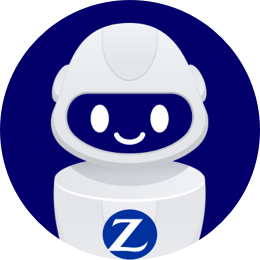First, check some FAQs
We’ve picked the most popular questions for you:
-
How can an employee change their investments?
Employees can make their own investment choice once they have access to their DEWS online account. Investments can be viewed and changed by visiting the ‘Fund’ area and clicking ‘Manage my investments’.
Employees can either choose to invest wholly in one option or make their own combination by assigning different percentages to multiple options. Once the percentage shows as 100% the investment change can be submitted.
Employees are reminded that investment changes will apply to the full accumulated balance and any contributions received going forward.
-
What are the fees associated with DEWS?
For employers, the only fees incurred will be the bank charges applied by their bank to send the monthly contribution payment to DEWS.
Employees are subject to an annual percentage-based fee which is designed to be fair and equitable to all members, regardless of seniority or salary. The fees vary depending on which investment option, or combination thereof, that an employee selects. For the latest fee information, we would encourage employees to check the individual fund factsheets which are updated monthly and held in the DEWS online portal. Fees are built into the unit price of the underlying funds for each investment option and are deducted proportionately daily, so when employees refresh their valuation on the online portal, fees have already been taken into consideration.
Employees will also be subject to a bank charge when withdrawing their benefits upon leaving service (or when withdrawing in service if the employee is making additional voluntary contributions and choose to withdraw from this).
-
What investment options are there for employees to choose from?
Within DEWS currently there are 10 investment options as follows:
Conventional Options Sharia Compliant Options Core Risk-Profiled Additional Catering to Islamic religious beliefs Low Growth Global Defensive Bond Islamic Money Market Low / Moderate Growth (default) Passive Global Equity Global Susuk Moderate Growth Islamic Global Equity Moderate / High Growth High Growth The default option is the Low/Moderate Growth option (some employees may be excluded). The default has been chosen by the Trustee, under advisement of their appointed investment adviser, Mercer. The Low / Moderate Growth option has been selected as the default by the Trustee, under advisement of their appointed investment advisor, Mercer. You should be aware that:
- The underlying fund will aim to pursue a balanced investment strategy with exposure to a range of both defensive and growth assets.
- It may fluctuate in value and is designed for longer term investments. You should be prepared to stay invested for at least 5 years.
- You can switch your investment without charge at any time or take a withdrawal (sell your investment units) if you have left service/made voluntary contributions, or you may choose to hold the investment for longer depending on your preferences and objectives.
All contributions made into the plan will be invested in the default option unless employees make an active investment decision.
All investment options are denominated in USD.
Further details in respect of the investment options, including performance, objectives and target returns, can be found on our website or in the DEWS online portal.
-
Can any of the DEWS providers offer employees tailored investment advice?
No. Whilst the providers can set out in a factual way the investment options available to enable employees to make an informed decision, we are not permitted to provide any employees with investment advice, and we would always encourage employees to seek this independently if required.
Mercer provides investment advice to Equiom, the Master Trustee, relating to the range of investment options that are made available through the DEWS plan.
-
How can an employee view what investment they hold and assess fund performance?
An employee can view their daily account value through the DEWS online portal or app.
Employees can also track performance at the underlying fund level by using our Fund Centre tool under investments.
First, check some FAQs
We’ve picked the most popular questions for you:
-
What is DEWS?
DEWS stands for the DIFC Employee Workplace Savings Plan. The plan was first introduced in February 2020 in the DIFC. As a result, employers needed to move their End of Service Gratuity liability management from a defined benefit structure to a funded, professionally managed defined contribution plan. DEWS was conceptualized after many years of consideration by working groups to transform and reform the way end-of-service benefits (EOSB) were managed and to drive a culture of long-term savings that is aligned to global best practices.
In 2022, the Government of Dubai announced their intent to launch the ‘Savings Scheme for Employees in the Government of Dubai’ and DEWS is a tailor-made and proven solution that will be introduced to deliver this initiative.
DIFC companies have a legal requirement to register into a qualified plan like DEWS, enrol their employees and pay in end of service benefits to be compliant with DIFC Employment Law.
DEWS is for any DIFC registered company with active employees, from small coffee carts to large multinational banks. All sizes and industries are eligible.
All full or part-time DIFC employees who are subject to a DIFC contract of employment or DIFC visa (including Golden Visa) and who are receiving a basic salary should be enrolled after they have successfully completed their probation period, or immediately upon hire if no probation period applies.
Assumed exemptions - no exemption application to be completed
There are some exemptions for individual employees, which include those who are:
- (a) required to be registered with the GPSSA under Article 65(1).
- (b) referred to in Article 4(2)(a), (b) and (c) as follows:
- (a) the Employee is working in or from the DIFC on the basis of a Secondment;
- (b) the Employee is employed in the DIFC by a local or federal government entity established by decree (or similar instrument) in the UAE, except for those established pursuant to the DIFC Founding Law; or (c) the President has exempted the Employee's Employer from being subject to this Law.
- (c) serving a notice period under Article 62 on 1 February 2020;
- (d) employed under a fixed term Employment Contract that will end within three (3) months of 1 February 2020; or
- (e) an Equity Partner, provided that an Equity Partner is only an Exempted Employee to the extent that they make drawings from a partnership, equity, capital, or profit account of the Employer or receive profit distributions or dividends from their Employer.
Please refer to the DIFC Employment Law for additional definitions.
Business owners who draw a basic salary are not exempt under point (e) above.
If you are a DIFC registered company that does not have any employees, then you do not have to enrol your company.
Individuals who are not in receipt of a basic salary are not required to be enrolled into DEWS, but employers can choose to do so if they would like to offer the employee the additional benefit. They should be added as ‘MemberType – 2’.
Non-assumed exemptions - exemption application to be completed
- Where the company is under a statutory duty in another country to make pension, retirement, saving or any substantially similar contributions into a scheme in such other country in respect of an Employee.
- Where the company is paying defined benefits to an Employee under a scheme where the defined benefits are in excess of the value of the Core Benefits required to be contributed in favour of Employees under Article 66(7) of the Law.
These exemptions cannot be assumed i.e., there is an exemption application to be completed.
Exemption queries and applications should be sent to qualifyingscheme@difc.ae. DEWS is not involved in the review/issuance of exemptions.
Where you are uncertain on eligibility or exemptions, please seek advice from the DIFC or through your normal legal channels.
-
Who is eligible for DEWS and who is exempt from DEWS relating to Dubai Government?
Mandatory
Foreign employees contracted by the following employers:
- All entities subject to DGHR law
- Any Govt. entity to which the decree is extended pursuant to legislation
- Any Govt. entities, or entities receiving support from the Govt. of Dubai, to which the decree is extended pursuant to resolution issued by the Chairman of the Executive Council
- Entities owned or controlled by the Dubai Govt. where the entities have chosen to participate
Voluntary
- Dubai Private Sector Entities
- UAE nationals contracted by any Govt. entities or entities owned or controlled by the Dubai Govt. where a UAE national employee:
- has voluntarily chosen to contribute in addition to GPSSA contributions, with employer consent; or
- as determined by resolution issued by the Chairman of the Executive Council
Exemptions
- When a foreign employee obtains UAE nationality, their enrolment in the plan becomes voluntary
- Where an employee is serving a notice period at the ‘Effective Date’ i.e. the date at which they are due to be enrolled into the plan
- Where an employee is excluded by legislation or resolution issued by the Chairman of the Executive Council
- Where an employee is entitled to a retirement pension or gratuity in accordance with Federal Law No. 7 of 1999 or any other applicable legislation
- Where a claim has been filed within prescribed limitation periods to recover financial entitlement owed by the employee that is in excess of any accrued gratuity
Payment reminders are issued at the following intervals:
- 7 days before the payment deadline (issued to administrator)
- 5 days after the payment deadline (issued to administrator)
- 30 days after the payment deadline (issued to administrator)
- 60 days after the payment deadline (issued to administrator, signatory, and employee)
The 7-day reminder is a courtesy email to inform you that the deadline is approaching.The 5-, 30- and 60-day payment reminders are where payments are overdue and where remedial action may be required. Within these emails we will always include the payroll period in question, the names of employees whose contributions we believe are overdue and the reason we have identified these individuals.
In these cases, if you have made the payment and/or believe everything is in order please contact us with the details of the transfer or for further clarification. If you have not made the payment, please arrange to make the payment immediately or advise us of any exemptions granted.
-
How do I enroll my company?
- DEWS will provide a digital onboarding link to Government Entities.
- Once you have submitted your application and we have created your entity, your designated administrator will receive a confirmation email and will be required to complete the set-up tasks which are:
- Bank details – provide the full bank details for where your contributions will originate from
- UBO details* (Ultimate Beneficial Owner) – provide us with the details of the individuals or entities that ultimately own your DIFC registered company
- Your designated authorised signatory will also receive an email with a link to sign the Deed of Participation which is your company’s legal/contractual agreement with the Trustee to participate in DEWS. This must be signed within 48 hours, or the link will expire, and you will have to reach out to us to re-issue this.
- Please note that the Trustee (Equiom) and Administrator (ZWS) may contact you post-registration requesting additional due diligence documentation – this is standard procedure, and we would kindly request that you provide your cooperation. If you have any doubts as to the legitimacy of any emails received, please feel free to verify with us.
- If you are responsible for more than one Government entity, you must complete the above steps for each company.
*UBO Details (Ultimate Beneficial Owner)
We would encourage you to consult with your legal/compliance teams, so that you can submit this information accurately. You will need to know:
Whether your company is listed or if your company is a majority owned subsidiary of a listed parent company and, if so, on what exchange
Whether your company is a Government entity or wholly owned by a Government entity and, if so, the legal name of that entity and country of registration
The personal details of all individuals who own or exercise significant control over your company, i.e.
- Individual holding 25% or more of the shares or ownership in the company
- Individual holding 25% or more of voting rights in the company
- Individual holding the right to appoint or remove the majority of the directors of the company
- Individual having significant control or influence over the company
- Your company may have more than one UBO
The employer should:
- Include the employee’s final contribution(s) in the upload file,
- Insert an exit date into your upload file.
- Remove the employee’s work email address in the upload file and replace this with their personal email address.
- Take the opportunity to check all other personal information is up to date i.e., residential address, phone number etc.
- Arrange your monthly contribution payment as normal.
- Pay out any accrued end of service benefits from before DEWS was introduced to the employee as part of their final settlement or provide them with the option to transfer this into DEWS if they will be choosing to remain invested (if applicable).
Once you have done this and uploaded the file into the online portal, an email will automatically be issued to the employee advising them of their options and next steps. Employees have the option to remain invested or to take a withdrawal.
DEWS will then liaise with the employee to complete their withdrawal if requested. There is no further action required from the employer and there is no vesting so employees will always be entitled to 100% of the invested benefit.
We have a leaver guide in our Documents page.
-
How do I enroll my employees?
Eligible employees should only be enrolled into DEWS once they have successfully completed their probation period and one year of continuous employment. At that stage the employer must make the back payment of contributions from the employment start date as a lump sum.
If probation is not successful or the employee does not complete one continuous year of employment, then no payment is due. If the employer makes a payment before an employee is confirmed or completes one year, the employee will still be entitled to receive this.
The process for Government employee enrolment will depend on whether your entity is part of the Government Resources Planning Portal (GRP).
We’ll communicate more on this and conduct training sessions to ensure all employers are fully comfortable with this process.
As a new company, you need to enrol into DEWS as soon as you have eligible employees. To enrol your company, please follow these steps:
- Ensure that you have nominated an authorized signatory for DEWS in your DIFC Client portal by visiting > Company Services > Designate an Authorized Signatory to sign the DEWS Deed of Participation. Should you require further assistance, please reach out to the DIFC Customer Service team for assistance with this on +971 4 362 2222.
- Visit our enrolment page - https://my.workplacesolutions.ae/sign-up
- Complete your personal details – you will be your company’s DEWS administrator moving forward.
- Search for your company - you must search for the company name as it is written in the DIFC Company Registry as this is where we source our data and if you cannot find your company name it is likely your company registration is not yet complete, or you are not yet listed as ‘Active’.
- Select your company, check your details, and submit your application.
- You will receive a confirmation email and will be required to complete the set-up tasks which are:
- Bank details – provide the full bank details for where your contributions will originate from
- UBO details* – provide us with the details of the individuals or entities that ultimately own your DIFC registered company
- Your designated authorized signatory will also receive an email with a link to sign the Deed of Participation which is your company’s legal/contractual agreement with the Trustee to participate in DEWS. This must be signed within 48 hours, or the link will expire, and you will have to reach out to us to re-issue this. If you wish to see a draft copy of the Deed of Participation before registration you will find this in the ‘Documents’ area of our website.
- Please note that the Master Trustee (Equiom) may contact you post-registration requesting additional due diligence documentation – this is standard procedure, and we would kindly request that you provide your cooperation. If you have any doubts as to the legitimacy of any emails received, please feel free to verify with us.
- If you have more than one legal entity in the DIFC, you must complete the above steps for each company.
*UBO Details
We would encourage you to consult with your legal/compliance teams, so that you can submit this information accurately. You will need to know:
- Whether your company is listed or if your company is a majority owned subsidiary of a listed parent company and, if so, on what exchange.
- Whether your company is a Government entity or wholly owned by a Government entity and, if so, the legal name of that entity and country of registration.
- The personal details of all individuals who own or exercise significant control over your company, i.e.
- Individual holding 25% or more of the shares or ownership in the company
- Individual holding 25% or more of voting rights in the company
- Individual holding the right to appoint or remove the majority of the directors of the company
- Individual having significant control or influence over the company
- Your company may have more than one UBO
-
What are Employer Mandatory Contributions?
Once enrolled, employers are required to make mandatory contributions into the plan for all eligible employees. The level of contributions will depend on an employee’s basic salary and their length of service.
The following rates are as per DGHR law and may vary depending on the law or internal regulation/policy that your company is subject to. Rates will also differ for expats during the period of approval to become a UAE national and gaining UAE nationality.
- For employees with less than 5 years’ service, contributions must be paid at a rate of 8.22% of an employee’s basic salary
- For employees with 5-10 years’ service, contributions must be paid at a rate of 12.33% of an employee’s basic salary
- For employees with 10 years’ service or more, contributions must be paid at a rate of 16.44% of an employee’s basic salary
Please refer to the appropriate law for basic salary requirements and definitions.
This amount is payable by the company in addition to salary and should not be deducted from the employee’s salary.
Contributions must be made monthly, and the payment deadline is the 21st day of the month following payroll i.e., if calculating for the July payroll period (1st July to 31st July), contributions must be paid before 21st August. This deadline is for payment to be credited into the trustee bank account and fully reconciled. It is therefore advisable that the contribution file be uploaded before making the payment and that payment be made with sufficient time to make any corrections, if needed.
For simplicity and cost neutrality, the minimum employer contribution rates under DGHR Law have been designed to broadly match minimum accrual rates under the previous end-of-service benefit system i.e., 30, 45 and 60 days as a percentage proportion of a year.
Employees should only be enrolled into DEWS once they have successfully completed their probation period. If probation is successfully completed, the employer must make the back payment of contributions from the employment start date. If the probation is not successful, then no payment is due. If the employer made a payment during probation and the probation is not successful, the employee will still receive be entitled to this.
Examples:
- Employee starts probation on 1st June for 3 months. Employer makes no contribution. Employee is confirmed on 1st September. Employer should make a retrospective contribution for June, July, and August as one lump sum before 21st September to DEWS.
- Employee starts probation on 1st June for 3 months. Employer makes no contribution. Employee is not confirmed after probation. Employer should not make any payment to DEWS.
- Employee starts probation on 1st June for 3 months. Employer makes monthly contributions to DEWS for June, July, and August. Employee is not confirmed on 1st September and employment is terminated. The employee will be entitled to the contributions paid.
Once you are ready to enrol your employees, you can do this by completing and uploading our ‘upload file’ into the DEWS online portal. The upload file and supporting guidance documents can be found in the Documents area. The upload file should be completed with the details of all eligible employees and if any retrospective contributions are due, they should be included as one lump sum in the ‘EmployerContributionAmount’ column.
When the file is ready, save in csv format and upload this into the DEWS online portal by logging in and visiting Main Menu > Contributions and Payroll > Upload employees and contributions.
If you encounter any errors i.e., you see ‘Fail’ or ‘Errors Detected’ during the upload process please click to view and refer to our error guide in the Documents area to troubleshoot, make any amendments and re-upload your file again.
When your file shows as ‘Success’ all your employees have been enrolled, their contributions have been created and the upload process is finalised. You can then proceed with your contribution payment.
You can verify this by visiting Menu > Contribution and Payroll > Contributions. The total amount when filtered to the current monthly pay period should match with the amount in the uploaded file. You can also extract a contribution report as a .csv or.xls file.
Use our Learning Academy
We’ve displayed articles and videos that you may find helpful.
Still need help?
Ask Zavi 24/7
Click "Let's chat" to get started
Live chat with our team
If you can’t find the answer you’re looking for, our team is there for you during our business hours:
Monday to Friday, 8am to 5pm.
Click "Let's chat" to get started
and then type "Expert"
Need additional support?
We’re here if you need us
If you still can’t find what you’re looking for, speak
to one of our customer service specialists:
Call 800-DEWS (3397)
Please dial +971 4 455 7575 if you are calling us
from outside the UAE.
Opening hours
Monday - Friday, 8am - 5pm








